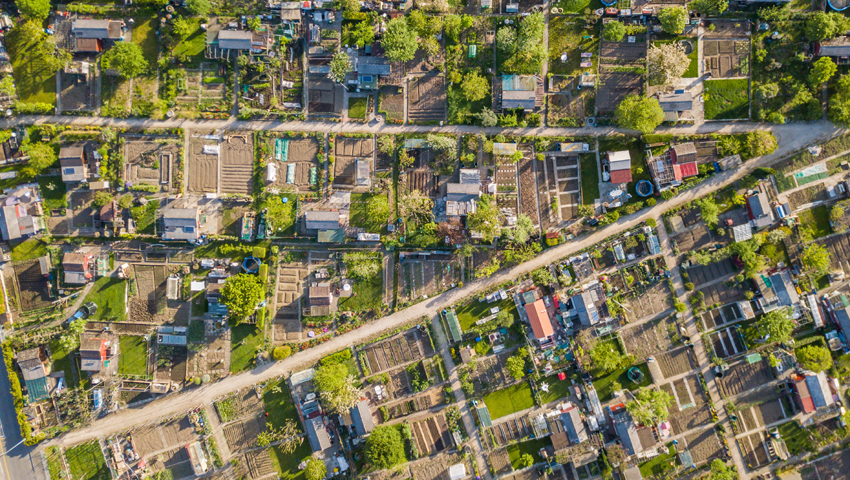SUSTAINABLE Food Places is a partnership programme led by the Soil Association, Food Matters and Sustain: the alliance for better food and farming. The programme brings together pioneering food partnerships from towns, cities, boroughs, districts and counties across the UK that are driving innovation and best practice on all aspects of healthy and sustainable food. Now stakeholders argue that Sustainable Food Partnerships should play a role in a new Land Use Framework for England.
A LAND Use Framework aims to help different food stakeholders work together more effectively. A Framework can help local government, farmers, landowners and communities design decision-making processes for their areas. DEFRA has committed to publishing a Land Use Framework for England in the Government Food Strategy and has repeated this commitment in parliament.
Leon Ballin is a Programme Manager for Sustainable Food Places. He told 8.9ha TV News that “A Sustainable Food Partnership is an inclusive, cross-sector partnership that takes a whole food systems approach.” He said that cross sector includes communities, Local Authorities, and other public sector actors such as the NHS, universities, producers, and those working in retail and hospitality.
“Unless you take a whole food system approach you end up with a sort of sustainable food whack-a-mole, where you’re trying to deal with one issue and it just pops up somewhere else,” he said.
Mr Ballin said that “The benefits for everyone involved are that you have a more active citizenship, so you get better access to those who have their hands on policy levers and funding and power; more agency, but there’s also the power of collaboration. What happens when [people] start working together is a really hard thing to measure, but we know it’s very positive and we have evidence that it does work. What comes out of partnership working is greater than the sum of its parts.”
Sustainable Food Places has evolved from Sustainable Food Cities. “We’ve moved from a demand-oriented programme to one that includes supply as well,” said Mr Ballin. “Farmers aren’t always great at connecting and the Partnership can support and amplify their voices and give access to better markets, including direct sales to citizens but also into the procurement supply chain. We’ve got 90 plus members now across the UK. I live in Sheffield and we’ve got a Sustainable Food Partnership here called Sheffood.”
Mr Ballin is convinced that Sustainable Food Partnerships are not another layer of bureaucracy. He said “They’re more of an enabling tool – bringing diverse voices together to find shared solutions around the food system, particularly on land use which is a pretty contentious area.”
He said that there is a misconception that these are community groups, but they actually include directors of public health, council leaders and MPs as well as citizens and food businesses.
Mr Ballin said, “It’s about bringing everyone together in a good food movement. In Sheffield the partnership works with both universities and the local authority, helping to deliver the Local Authority food strategy because it has better outreach out into the local community. It’s a coalition of the willing, it’s very positive.”
Find out more about Sustainable Food Places
